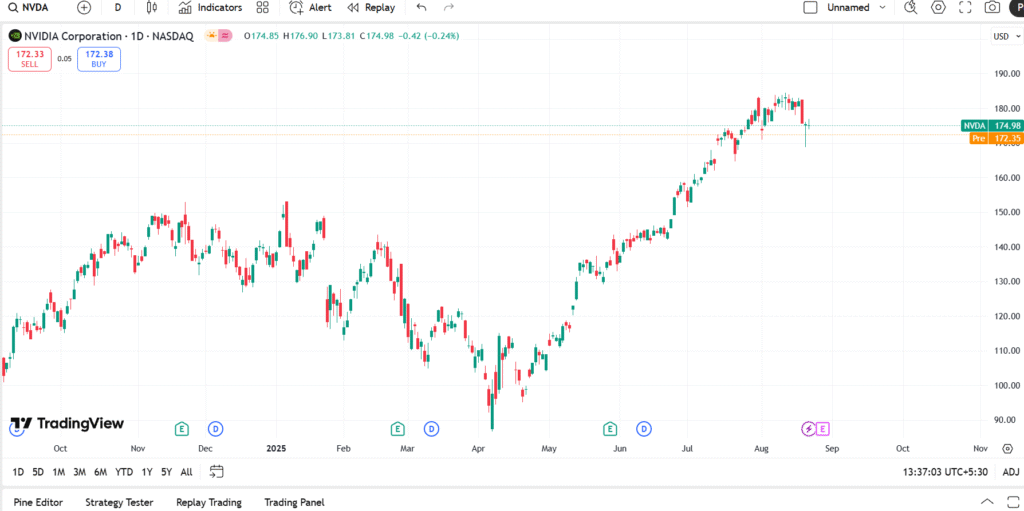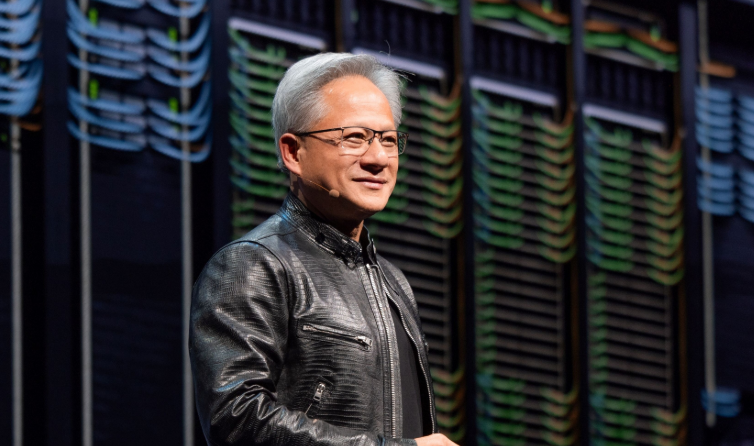Nvidia has suspended production of its H20 AI chip, a processor specially designed for China, after Beijing ordered leading tech firms like Tencent, ByteDance, Alibaba, and Baidu to halt purchases over alleged security risks and “backdoors.” The move deepens U.S.-China technology tensions, disrupts Nvidia’s supply chain involving Amkor, Samsung, and Foxconn, and comes after the company already faced a $5.5 billion hit from unsold H20 inventory. While Nvidia’s stock dipped nearly 2%, Chinese chipmakers such as Cambricon and SMIC surged, reflecting growing momentum for domestic alternatives.
Nvidia Halts H20 AI Chip Production as China Orders Tech Giants to Stop Purchases
Nvidia, the U.S. semiconductor giant, has suspended production of its H20 AI chip, a processor specifically designed for the Chinese market, after Beijing reportedly directed domestic technology firms to halt purchases. The move marks another escalation in the ongoing U.S.-China technology rivalry and raises fresh uncertainty over Nvidia’s strategy in one of its most important markets.
Background on the Nvidia H20 Chip
The H20 chip was created as a modified version of Nvidia’s high-performance AI processors to comply with U.S. export restrictions imposed in 2022 and tightened in 2023. These rules were intended to prevent China from accessing advanced AI technology that could have military applications. Built on Nvidia’s Hopper architecture, the H20 balanced performance with compliance and became a critical product in China, which generated $17 billion in revenue for Nvidia last year despite export controls.
Why Did China Crack Down on H20 Purchases?
In early August 2025, Chinese regulators, including the Cyberspace Administration of China (CAC), summoned major tech firms such as Tencent, ByteDance, Alibaba, and Baidu to question their purchases of the H20 chip. Officials raised concerns about “information risks” and alleged “backdoors” that could allow remote access or tracking.
Nvidia has denied these claims. Speaking in Taipei on August 22, 2025, CEO Jensen Huang stated, “There are no backdoors, there never have been,” while confirming ongoing discussions with Chinese regulators.
The directive reflects Beijing’s broader campaign for technological self-sufficiency, encouraging domestic firms to shift toward local chipmakers like Huawei and Cambricon. Chinese state media has also described the H20 as “unsafe and outdated,” discouraging its use for government-linked projects. The move also came after U.S. Commerce Secretary Howard Lutnick’s controversial remarks that Washington wanted China “addicted” to American technology, comments that reportedly hardened Beijing’s stance.
Nvidia’s Response: Halting Production
On August 22, 2025, reports revealed that Nvidia instructed its key suppliers — including Arizona-based Amkor Technology, South Korea’s Samsung Electronics, and Taiwan’s Foxconn — to suspend H20-related work. The decision follows a $5.5 billion charge Nvidia recorded in Q2 2025 due to unsold H20 inventory and canceled commitments after earlier U.S. export restrictions.
A company spokesperson noted, “We constantly manage our supply chain to address market conditions,” while clarifying that the H20 was not developed for government or military infrastructure.
U.S.-China Trade Dynamics
The H20’s trajectory reflects the broader turbulence in U.S.-China trade policy. In April 2025, Washington banned Nvidia from selling the chip to China. However, by July 2025, the Trump administration reversed course, allowing sales to resume in exchange for a 15% revenue cut to the U.S. government. That controversial decision triggered domestic criticism over national security concerns.
Now, with China blocking purchases, Tech Giants strategy faces new hurdles. CEO Jensen Huang has emphasized that excluding Nvidia from China risks pushing developers to adopt rival ecosystems like Huawei’s, which are growing in hardware performance but still lack Nvidia’s mature software stack. To counter this, Company is reportedly working on a new AI chip for China, the B30A, based on its advanced Blackwell architecture.
Expected to be 30–50% less powerful than the flagship B300, the B30A is designed to comply with export rules while catering to Chinese demand. Samples could be available for testing as early as September 2025, though U.S. regulatory approval remains uncertain.
Impact on Nvidia and the Market
The production halt is already rippling across financial markets and supply chains:
Stock Market Reaction: Nvidia’s shares fell about 1.9% in alternative trading systems after the news, reflecting investor concerns over its exposure to China. Meanwhile, Chinese semiconductor firms like Cambricon surged up to 10%, and SMIC rose 5%.

Supply Chain Effects: Suppliers such as Amkor, Samsung, and Foxconn face disruptions, with reports of semi-finished H20 units stacking up at Amkor’s facilities.
Strategic Shift: Nvidia’s pivot toward the B30A shows its intent to stay in China, but U.S. approval will be a critical factor.
Broader Implications
The suspension of H20 chip production highlights how AI processors have become a battleground in the U.S.-China technology conflict. While China accelerates efforts to develop self-reliant alternatives, limitations in advanced chip manufacturing equipment remain a hurdle. For Chinese tech giants, the sudden ban on H20 use could increase costs and slow AI development in the near term.
Globally, this episode may drive countries to diversify chip supply chains, potentially fragmenting the AI hardware ecosystem between U.S.-aligned and China-aligned technologies.
What’s Next?
All eyes will be on Company’s upcoming earnings report next week, which may shed light on the financial impact of the H20 suspension. Meanwhile, U.S.-China trade talks could determine the fate of Tech Giant’s next China-focused chip, the B30A, and shape the future of global AI chip competition.

